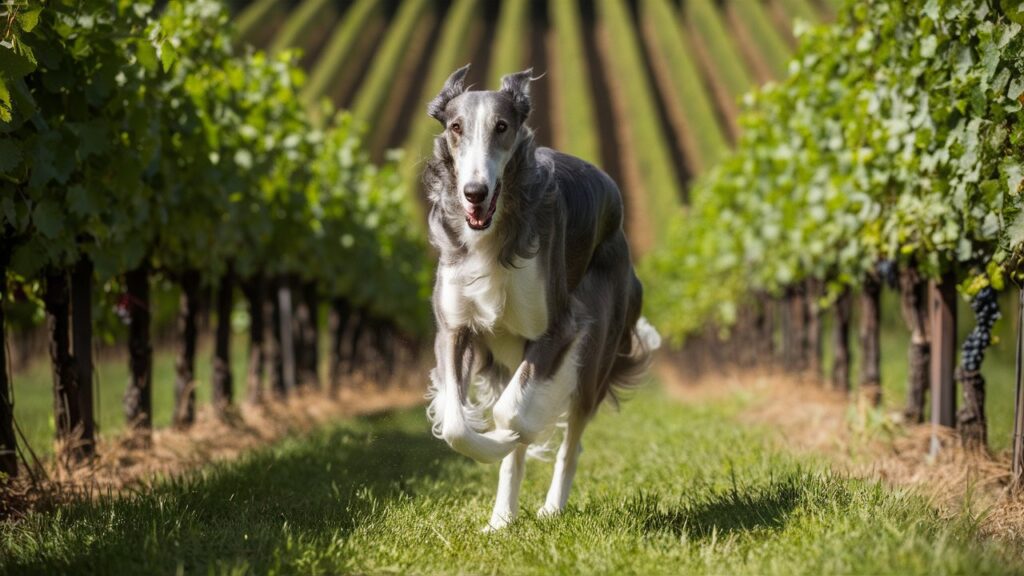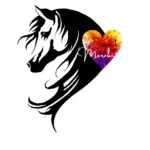How to Stay Strong When You Lose a Loved One
My mission is to help people through life challenges and transitions, like divorces, empty nests, voluntary and involuntary career changes, redundancies, losing loved ones etc.

My beautiful Barzoi, Arcady Nikolai, lost his uphill struggle against cancer on Friday morning. He has been my constant companion for years, and his absence has left me bereft. Even though I knew it was coming, it was no less painful when the moment came than if it had been unexpected.
Coping with the loss of this dearly loved one feels like stumbling around in the dark, I keep crashing into invisible walls. When I lost Belle, my heart-mind-and-soul mare, I coped by keeping myself to myself and creating the Guided Journey to Finding Closure after the Loss of a Horse.
My friends found it strange that I did not want to see anyone.
I am an introvert, and introverts grieve differently.
Introverts, who often find solace in solitude, may process their grief internally, reflecting deeply on their emotions and experiences. Introverts process their emotions privately. They often prefer to isolate themselves during times of loss, finding it easier to understand and cope with their grief away from social demands that can be completely overwhelming for introverts. Introverts may engage in introspective activities such as journaling and reading, which allow them to explore their feelings in depth and at their own pace. They might also seek the comfort of one or two trusted friends or family members who have had similar experiences, rather than larger social gatherings. This preference for intimate connections provides a safe space where they feel understood and supported without the pressure to outwardly express their emotions. By retreating into their inner world, introverts can navigate their grief in a way that aligns with their need for privacy.
I am also an empath.
Empaths, who are highly attuned to the emotions of others, grieve in a way that often involves deeply feeling not only their own sorrow but also the pain of those around them. They often need to find ways to protect their energy and create boundaries to avoid becoming emotionally drained. Self-care is crucial for empaths during times of grief; they often seek solace in nature as it allows them to process their emotions privately. Additionally, empaths might find comfort in supporting and comforting others who are grieving, as this aligns with their natural tendency to care deeply for others’ well-being. The empath’s grieving process is deeply interwoven with the emotional currents of their environment, necessitating a balance between empathy for others and self-compassion.
If you are an introvert and/or an empath, and like me, you are grieving the loss of a dog, allow yourself to grieve in a way that feels comfortable to you, and do not feel compelled to give in to pressure from your well-meaning friends and family who worry that your way of grieving is unhealthy.
Writing this post is part of my grieving process for Arcady, just as creating the Guided Journey to Finding Closure after the Loss of a Horse online retreat was part of my grieving process for Belle.
No course this time, just an article with a list of coping suggestions, specifically for empaths and introverts:
- First and foremost, allow yourself to grieve, your way. Acknowledge your emotions and understand that it’s normal to feel sad, angry, bereft and lonely. Grieving is a personal process, and there’s no right or wrong way to do it.
- Journal about your feelings can be a therapeutic way to process your grief. You can record memories, or simply express your emotions. Use this prompt, for example: Take some time to openly express the range of emotions you are experiencing since the loss of your dog. Are you feeling sadness, anger, relief, or a mix of many emotions? How has this loss impacted your daily routine and sense of well-being? Acknowledge and validate your feelings as a natural part of the grieving process.
- Read books about emotional healing after a loss. Sometimes, reading about others’ experiences can provide comfort and insight into your own feelings. I found I’m Not a Mourning Person: Braving Loss, Grief, and the Big Messy Emotions That Happen When Life Falls Apart by Kris Carr useful. Or just read. Anything that will take your mind off your loss for an hour or two.
- I am going to plant an almond tree in memory of Arcady. Planting a tree or creating a small garden in memory of your dog, cat, horse or person is an intensely comforting thing to do.
- Despite your grief, be mindful. I spend a lot of time mindfully communing with the horses. There are many guided mindfulness sessions available on YouTube specifically designed for grief resolution.
- Find or create a playlist of soothing music. Personally, I prefer uplifting music, but we are all different. You do you. Music can be a powerful tool for emotional healing.
- Go for a walk in nature, perhaps in places where you used to walk with your dog. Or perhaps not. Perhaps later. Nature has a calming effect and can help you feel more grounded and centred. Or just sit quietly – this can help you connect with the immense healing power of nature as you find solace in familiar surroundings.
- Mindful breathing releases tension and helps you find a sense of calm and control. Especially if you are on the verge of bursting into tears, for the 296th time. I do square breathing.
- If you feel up to it, consider a short trip to a peaceful location. A change of scenery and some time alone in a new environment can be refreshingly restorative. If at all possible, I like to head for the beach. Blue Space, you know.
- Be grateful. Of having been able to share part of your life with this awesome companion, of the friendship and love your dog brought into your life, and of everything and everyone else that you appreciate, even though your dog is no longer by your side.
- Volunteer at a local animal shelter or donate to an animal charity in your dog’s name. Helping other animals can be a meaningful way to honour your pet’s memory.
- Remember the good times, focus on the positive memories and the love you shared. Celebrate your dog’s life and the joy they brought into your world.
Be gentle with yourself during this time. Allow yourself to grieve in your own way and take the time you need to heal. If you find that your grief is overwhelming and interfering with your daily life, consider seeking the help of a therapist or counsellor who specialises in pet loss.
Because it was not just a dog. You’ve lost a faithful friend who loved you unconditionally.
| And if you feel you need a break, away from all the hustle and bustle, come and recharge your batteries here in the sun-drenched southwest of France. Walk part of the Camino de Santiago de Compostela and spend a few days in the presence of my patient, understanding and supportive Friesian and Falabella horses – even if you don’t interact with them at all, just having them around is calming and comforting – on a Stress-busting Camino de Santiago walking retreat to reinvent yourself, rewrite your story and start your sensational next chapter. |


